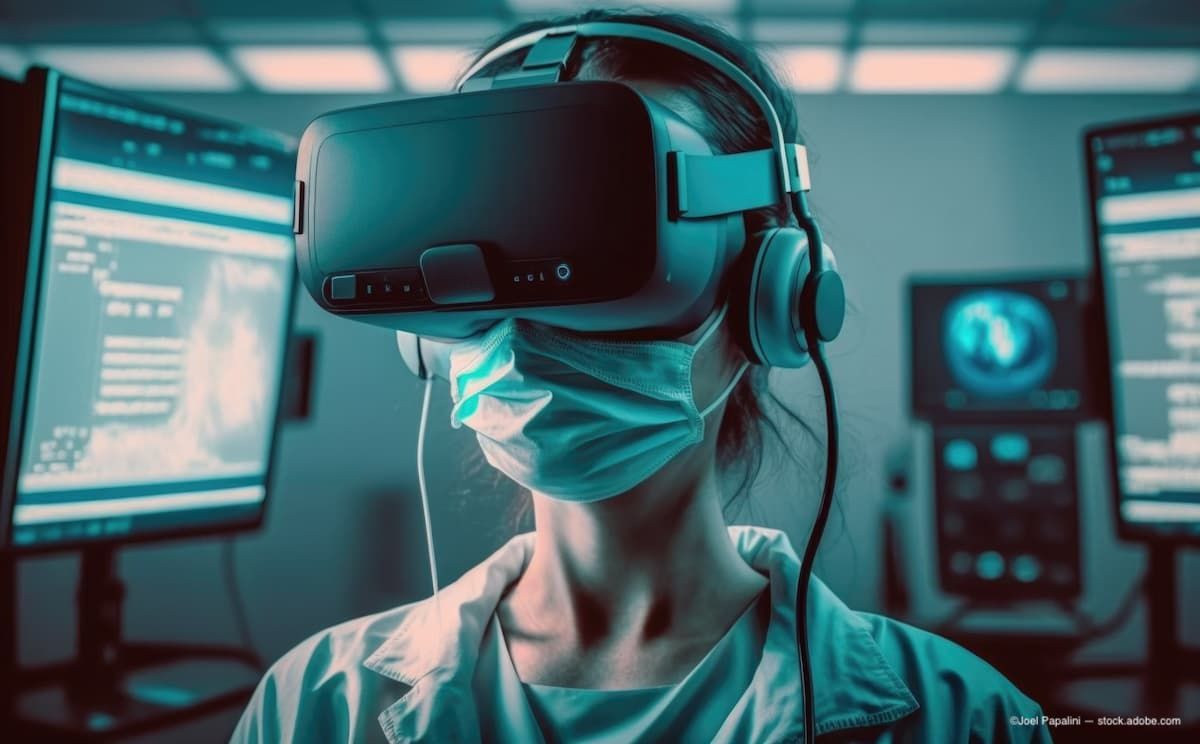Orbis, FundamentalVR unveil VR solution that may democratize ophthalmic surgical training
According to the companies, the tool is affordable, portable, scalable, and intentionally designed to train surgeons in low- and middle-income countries, home to 9 out of 10 people with vision loss due to the difficulty of accessing eye care. The VR tool is being unveiled at the American Society of Cataract and Refractive Surgery Annual Meeting in Boston.
(Image Credit: AdobeStock)

Orbis International and FundamentalVR are rolling out a new immersive virtual reality (VR) training solution intentionally designed for use in low- and middle-income countries, at the American Society of Cataract and Refractive Surgery (ASCRS) Annual Meeting.
The ASCRS 2024 Annual Meeting is taking place April 5 to 8 at the Boston Convention and Exhibition Center.
According to a news release, the tool is built to support students and residents learning to perform surgery to treat cataracts – the world's leading cause of blindness, despite being treatable with a short operation – ultimately growing the number of skilled care providers and improving outcomes for patients. The tool's affordability, portability and scalability, combined with its targeted functionality, make it a key advancement in ophthalmic surgical education globally and will accelerate Orbis's efforts to build strong and sustainable eye care systems around the world.1
Orbis, a global nonprofit, teamed up with FundamentalVR, a technology company dedicated to developing VR surgical training solutions, to create this unique tool. It integrates VR, haptic feedback, cloud assessment data, and off-the-shelf hardware to create a solution for cataract surgical training in resource-limited settings. Immersive VR simulation integrated with haptics provides a highly realistic experience for eye-care professionals, who are able to practice each step repeatedly to cement their understanding of both basic and difficult techniques.
Hunter Cherwek, MD, vice president of clinical services and technologies at Orbis International, said the parntners saw an unmet need they could fill.
“Most existing simulation training tools are expensive, not easily transportable or sourced, and/or train doctors on a surgical method usually only practiced in high-resource areas,” he said. “Thanks to our partnership with FundamentalVR, we were able to bring a new VR solution to life that makes cataract surgical training accessible no matter where you live."
The companies noted in their news release the training tool allows independent learning through automated performance monitoring and feedback, a particular benefit to medical professionals without access to robust ophthalmic training opportunities. Residents can hone their skills in a realistic simulation, practicing first in a safe environment before entering the operating room, which is proven to yield better surgical outcomes. Users of the platform can supplement their learning with Cybersight, Orbis's telemedicine and e-learning platform.
"Our partnership with Orbis International not only underscores our commitment to advancing the field of ophthalmology but also highlights the immense potential of VR in creating safer, more effective learning environments for healthcare professionals," said Richard Vincent, co-founder and CEO of FundamentalVR. "Our goal is to elevate patient outcomes and redefine the standard of surgical proficiency on a global scale, advancing the quality of healthcare across borders."
Moreover, the companies noted the tool's use of affordable gaming hardware makes it more financially accessible to resource-restricted partners. Additionally, it focuses on manual small-incision cataract surgery, the most common technique performed in low-resource countries, in order to train eye care professionals in the procedure they are most likely to use, making them better equipped to treat patients in their own communities.1
According to the news release, the tool is already in use at partner hospitals in Bangladesh, China, Mongolia, Ethiopia, and India, where it is fast becoming an essential element of eye care education. Orbis is working with Bangladesh to incorporate surgery simulation into its national ophthalmology training curriculum, helping it become the third country in the world to mandate its use for eye care education.
The companies noted the tool was featured in a recent campaign as an example of how the metaverse is helping transform industries, including healthcare.2
In the future, Orbis plans to use VR solutions to help train medical professionals in the treatment of glaucoma, strabismus and other eye conditions, further expanding access to eye care around the world.
The new training tool was developed with funding from the Silicon Valley Orbis Innovation Fund established by John A. and Susan Sobrato, Connie and Bob Lurie, Dr. David F. and Victoria A. Chang, and the ASCRS Foundation.1
References:
International O. New VR Solution to Democratize Ophthalmic Surgical Training: Affordable, Portable and Scalable. www.prnewswire.com. Accessed April 5, 2024. https://www.prnewswire.com/news-releases/new-vr-solution-to-democratize-ophthalmic-surgical-training-affordable-portable-and-scalable-302108822.html
campaign O featured in second M. Orbis featured in second Meta campaign. Orbis. Published April 5, 2024. Accessed April 5, 2024. https://www.orbis.org/en/news/2024/meta-2024